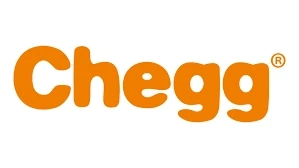Introduction
In the academic world, where the authenticity of work is paramount, plagiarism can be a significant concern. This is where tools like the Chegg Plagiarism Checker become invaluable. Often discussed in scholarly circles, this tool has garnered attention for its role in preserving academic integrity. But what do the experts, the academics themselves, say about it? Let's delve into their insights.
Overview of Chegg Plagiarism Checker
The Chegg Plagiarism Checker is a comprehensive tool to detect similarities and potential plagiarism in academic work. It scans documents against a vast database of published material and online content, providing a detailed report on any matches found. This tool has become a staple in many academic institutions for its robust features and reliable performance.
Why Do Academics Rely on Plagiarism Checkers?
In today's digital age, information is readily accessible, making it easy for students to plagiarize unintentionally (or intentionally). Academics rely on plagiarism checkers to ensure that the work submitted by students is original and to maintain the standard of academic honesty. These tools are essential in upholding the quality and credibility of academic work.
First-Hand Experiences: Professors' Perspectives
Many professors across disciplines have relied on the Chegg Plagiarism Checker. They find it invaluable in detecting instances of plagiarism in student papers. For instance, a history professor noted how Chegg helped uncover a case of plagiarism in a term paper, which was otherwise hard to detect. Such instances underscore the tool's significance in academic assessment.
Evaluating the Accuracy and Efficiency
When it comes to accuracy and efficiency, the reviews are predominantly positive. Academics appreciate Chegg's thoroughness in scanning documents and its ability to provide quick results. However, some have pointed out that no tool is infallible, and there can be instances of false positives or missed matches, albeit rarely.
Ease of Use and Integration into Academic Systems
Feedback on the user experience with Chegg's Plagiarism Checker is generally favorable. Its user-friendly interface makes it easy for both educators and students to use. Moreover, its integration capabilities with various academic management systems add to its appeal, making it a seamless part of the academic workflow.
Benefits for Students: An Educator's View
Educators highlight that the Chegg Plagiarism Checker is not just a tool for detection but also a learning aid for students. It helps students understand the importance of originality and proper citation, essential skills in academic writing. Educators emphasize their role in educating students about the nuances of academic integrity.
Comparative Analysis: Chegg vs. Other Plagiarism Tools
Chegg often stands out for its comprehensive database and accuracy compared with other plagiarism detection tools. Academics appreciate its ability to scan a wide range of sources. However, they also acknowledge that choosing a plagiarism checker can depend on specific needs and preferences, with some alternatives offering different functionalities.
Limitations and Areas for Improvement
Despite its strengths, some academics highlight areas where the Chegg Plagiarism Checker could improve. These include expanding its database to include more niche publications and reducing instances of false positives. These constructive criticisms highlight the tool's potential for growth.
The Future of Plagiarism Checking in Academia
Looking forward, Chegg Plagiarism Expert Checkers are anticipated to evolve, incorporating more advanced algorithms and broader databases. Academics are optimistic about these advancements, foreseeing a more robust tool that can adapt to the ever-changing landscape of academic writing.
Conclusion
In summary, the Chegg Plagiarism Checker receives a nod of approval from the academic community. Its role in fostering academic honesty and supporting the integrity of educational institutions is well-recognized. As technology advances, so does the potential of tools like Chegg to become even more integral to the academic process.


